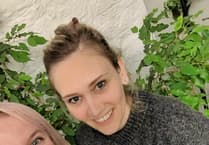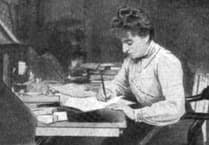Are You There God? It’s Me, Margaret
Cert - PG, Run-time - 1 hour 46 minutes, Director - Kelly Fremon Craig
After moving from the city to the suburbs 11-year-old Margaret (Abby Ryder Fortson) tries to work out who she really is, whilst trying to grow up as fast as possible.
“It gets tiring trying so hard all the time, doesn’t it?” Barbara (Rachel McAdams) partially asks herself as she cuddles up to her daughter. “Yeah” sighs 11-year-old Margaret (Abby Ryder Fortson), exhausted from trying to grow up as fast as possible. While all her friends seem to have already had their first periods and the exercises she tries to go up a bra size (“I must, I must, I must increase my bust!” she chants) fail to work she’s also trying to work out just who she is. Since moving from New York City to the New Jersey suburbs everything has changed, especially as she’s on the verge of adolescence.
There’s an everyday feel to writer-director Kelly Fremon Craig’s adaptation of Judy Blume’s still-radical novel of the same name. A generation-spanning timelessness is captured in the story being kept in 1970. Through this a hand of commonality is extended to the audience, old and young (particularly of Margaret’s age), bringing them in to the various tales which unfold over the year which the film captures.
Craig acknowledges the humour of the awkwardness and anxiety of this time of life. What some kids do in an attempt to feel more grown up and the conversations which arise because of this. Yet, there’s a well-captured dramatic side to sometimes the same events. From the different responses to first periods (casually brushing it off and moving on vs tearful panic) to the rumours going around school about the girl at school (Isol Young) who started to go through everything earlier than everyone else.
Meanwhile, Barbara worries about making her house as perfect as possible by bringing in a sense of ‘normality’, the living room goes without any key seating for months as she tries to find the right set. Although the most emotional point for her lies in the character’s relationship with her parents - who she hasn’t spoken to since they disapproved of her marrying a Jewish man (Benny Safdie). It’s a strand which sticks the landing every time it appears, particularly helped by McAdams’ wonderfully understated performance.
The relationship between McAdams and Fortson’s characters is a frequently touching one, especially in the quiet mum-and-daughter bonding scenes. There’s a tenderness to the relationship - as there is in the louder bond between Margaret and her grandmother (Kathy Bates), who shows of her granddaughter when she attends Temple with her, not knowing that Margaret is trying to work out whether she’s Jewish or Christian, partly for a school project.
These relationships mark a clear difference to those at school and elsewhere in Margaret’s life. All pushing the natural course of growing up and confliction within the film and it’s wonderfully performed central character. All effectively caught with tones of humour and, most importantly, understanding.
Jamie Skinner, Four stars ****




